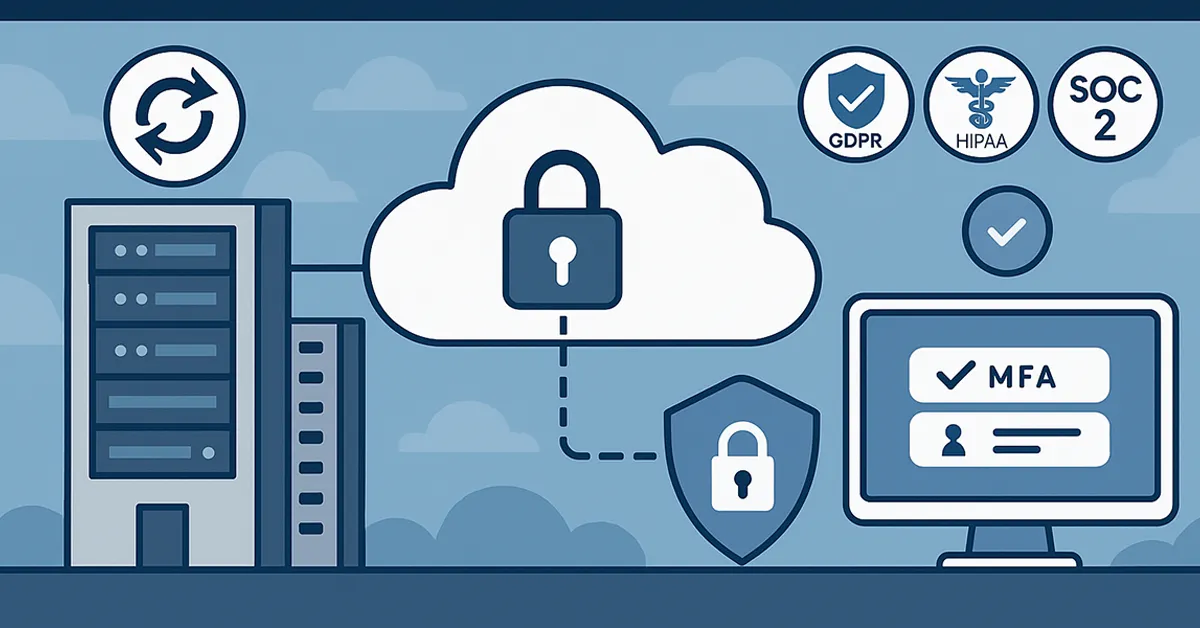In today’s fast-paced digital world, modern enterprises face a constant balancing act between data security, agility, and compliance. Hybrid cloud computing has emerged as the strategic solution—blending on-premises control with public-cloud scalability. This approach allows companies to optimize workloads, safeguard sensitive data, and adapt to evolving business demands.
1. Scalability Without Compromising Control
Hybrid cloud offers elastic scalability that enables businesses to expand computing power instantly during high-demand periods, while keeping mission-critical or regulated workloads on-premises for tighter control. This hybrid elasticity is especially valuable for global enterprises balancing compliance with innovation.
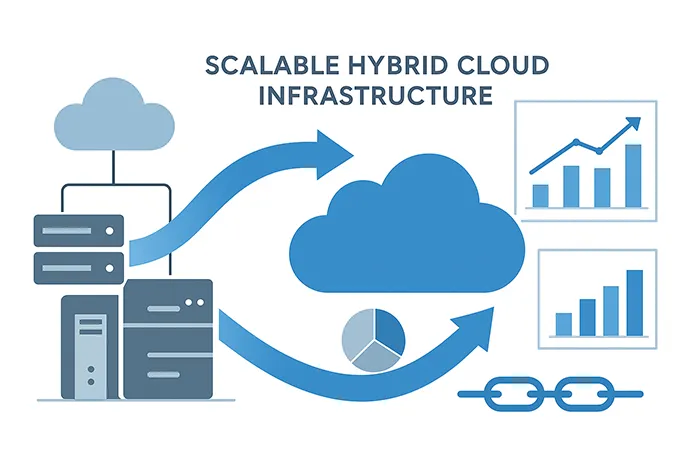
2. Enhanced Data Security and Privacy
Hybrid environments strengthen Zero Trust Security frameworks by separating workloads between secure private infrastructure and scalable public clouds. Businesses can apply advanced encryption, intrusion prevention, and data loss prevention (DLP) controls while meeting global compliance standards such as GDPR, HIPAA, and ISO 27001.
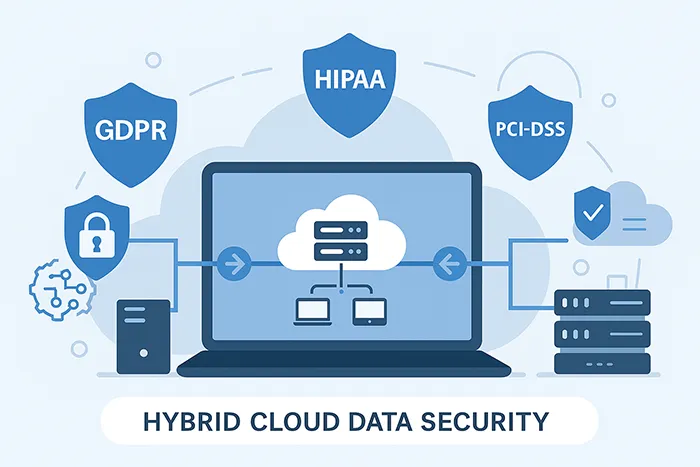
3. Improved Cost Efficiency
With a hybrid model, companies pay only for public-cloud resources they use while maintaining predictable costs for on-premises workloads. This balance avoids over-provisioning and enables long-term operational savings—ideal for enterprises optimizing network automation and resource efficiency.
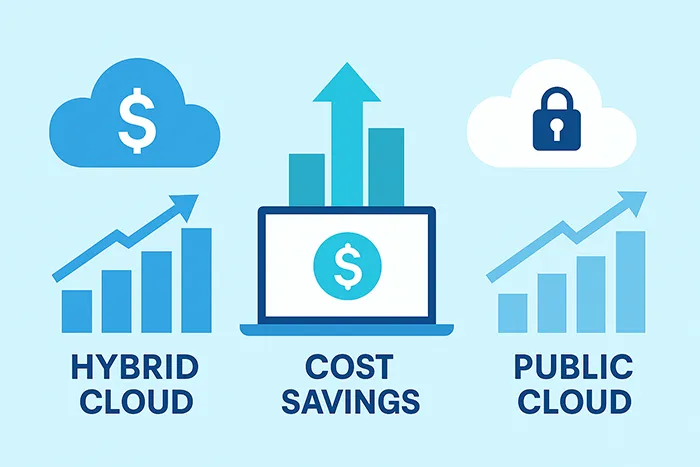
4. Business Continuity and Disaster Recovery
One of the most critical advantages of hybrid cloud is its redundancy. Data can be mirrored between on-prem and cloud infrastructure, providing fast failover during outages. It aligns perfectly with ISO 27001 and NIST SP 800-34 frameworks for business continuity and disaster recovery planning.
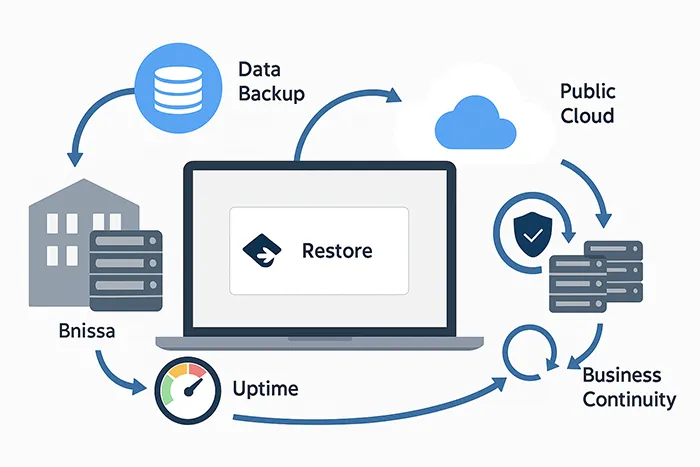
5. Regulatory Compliance and Data Residency
Global organizations must comply with country-specific data-residency laws. Hybrid cloud enables regional data storage for compliance with GDPR, HIPAA, and ISO 27001. Businesses can host sensitive data locally while leveraging global scalability for non-regulated workloads.
6. Faster Application Deployment
Hybrid environments empower DevOps teams to build, test, and deploy faster. Applications can be developed in the cloud for agility, then migrated to private infrastructure for compliance. This flexibility accelerates innovation cycles and reduces time-to-market for new products.

7. Centralized Identity and Access Management (IAM)
Through integration with identity providers such as Microsoft Entra ID (Azure AD) and Okta, hybrid cloud simplifies authentication and enforces MFA and SSO policies across environments. It supports secure password management solutions to safeguard user identities.
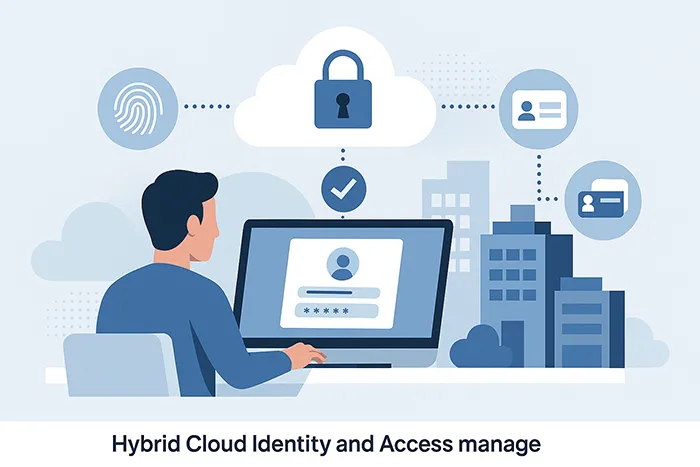
8. Increased Agility and Innovation
By combining private security with public scalability, hybrid cloud empowers innovation. Developers can experiment in sandbox environments, integrate AI workloads, and scale globally—all while ensuring that core systems remain protected within controlled infrastructure.
9. Legacy System Integration
Many established companies rely on legacy systems that can’t migrate fully to cloud. Hybrid architecture bridges this gap using APIs and middleware, allowing organizations to modernize gradually without disrupting daily operations.
10. Future-Proofing with AI and Edge Integration
Hybrid cloud is evolving into a foundation for future technologies such as AI, ML, and edge computing. By distributing workloads between cloud and on-prem systems, enterprises can optimize performance and reduce latency for connected devices.
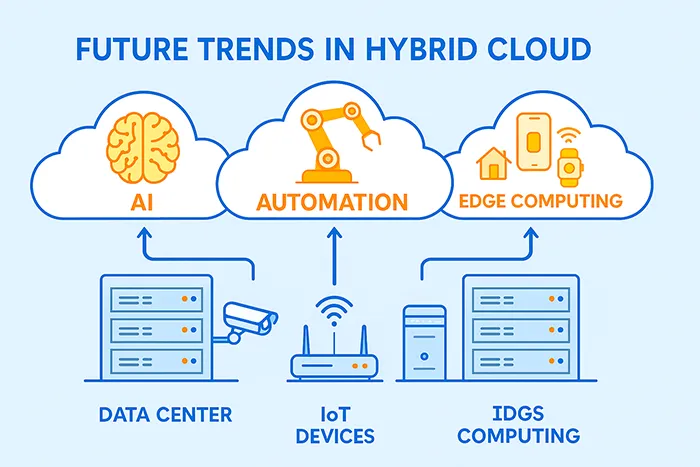
Best Practices for Implementing Hybrid Cloud
- Use automation for deployment and configuration consistency.
- Encrypt data both in-transit and at-rest with enterprise-grade keys.
- Regularly audit compliance against standards like ISO 27001 and SOC 2.
- Train IT staff on hybrid monitoring tools and Zero Trust access models.
- Implement centralized logging to detect anomalies early.
Conclusion
Hybrid cloud has become the backbone of digital transformation. It combines the security of private data centers with the scalability of public cloud platforms, enabling innovation, compliance, and resilience. For enterprises navigating global data regulations, hybrid cloud isn’t just an option—it’s a necessity for sustainable growth in the era of distributed computing.
📘 Related Reading: Key Security Benefits of Hybrid Cloud for Data Compliance
Frequently Asked Questions (FAQs)
What is hybrid cloud architecture?
It’s an IT framework that integrates private and public cloud resources to balance control, flexibility, and security.
Why is hybrid cloud essential for modern enterprises?
Hybrid cloud supports scalability, cost efficiency, data compliance, and innovation—key pillars of modern IT strategy.
Does hybrid cloud improve compliance?
Yes. It enables localized data storage, encryption, and access controls aligned with GDPR, HIPAA, and SOC 2 frameworks.
Can hybrid cloud support disaster recovery?
Absolutely. Hybrid environments provide built-in redundancy, ensuring business continuity even during service disruptions.
Is hybrid cloud more secure than public cloud?
In most cases, yes—because it lets enterprises retain control of sensitive workloads on-premises while scaling safely via public infrastructure.

